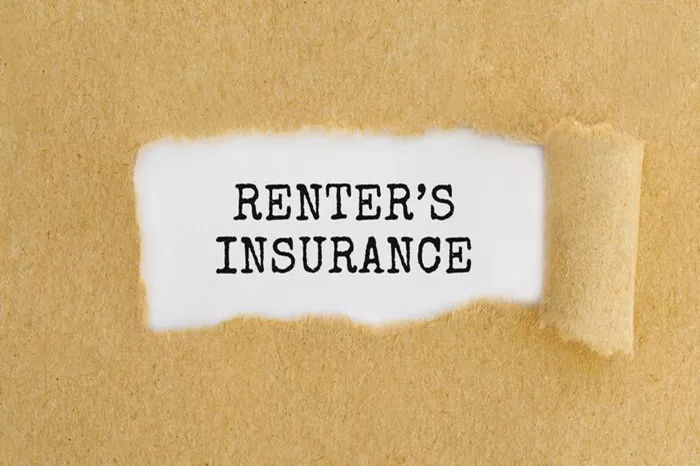Renters insurance provides vital protection for individuals who lease their homes, covering personal property and liability. However, when an incident occurs, understanding the claims process and how long renters insurance might take is crucial. This article will explore the steps involved in filing a renters insurance claim, the typical time frames, factors affecting claim duration, necessary documentation, and tips for a smooth process. We will also discuss policy terms and the impact of claims on future premiums.
Overview of the Claims Process
The claims process for renters insurance generally follows a standard procedure, designed to ensure that claims are handled efficiently and fairly. Here are the typical steps involved:
Incident Occurrence: An event such as theft, fire, or water damage occurs, resulting in loss or damage to your personal property.
Notify Authorities: Depending on the nature of the incident, you may need to contact the relevant authorities. For example, if theft is involved, you should file a police report.
Contact Your Insurance Company: As soon as possible, inform your insurance company about the incident. This can usually be done via phone, email, or through an online portal.
File the Claim: Submit a formal claim with your insurance company, providing all necessary details and documentation.
Claim Evaluation: The insurance company reviews your claim, assesses the damage or loss, and determines the amount of compensation you are eligible to receive.
Approval and Payout: If your claim is approved, the insurance company will process the payment according to the policy terms.
Time Frame for Filing a Claim
It is essential to file your claim within a specific time frame after the incident to ensure it is processed without issues. Most insurance policies require you to file a claim within 48 to 72 hours of the incident. This prompt reporting helps the insurance company start the evaluation process and reduces the risk of claim denial due to late submission.
Average Processing Time
The average processing time for a renters insurance claim is about 30 days. However, this can vary depending on several factors, including the nature of the claim and the efficiency of the insurance company’s claims department. Understanding this timeline can help set your expectations and allow you to plan accordingly.
Factors Affecting Claim Duration
Several factors can influence how long it takes to process a renters insurance claim. These include:
Complexity of the Claim: Simple claims involving straightforward incidents and clear documentation are processed faster than complex claims with multiple issues or extensive damage.
Amount of Documentation Required: Claims requiring more documentation, such as detailed receipts, repair estimates, or multiple witness statements, can take longer to process.
Responsiveness of the Claimant: The speed at which you provide requested information and documentation to the insurance company affects the overall processing time.
Insurance Company’s Efficiency: Some insurance companies have more streamlined claims processes and better customer service, leading to faster processing times.
External Factors: Events like natural disasters can cause a surge in claims, potentially delaying the processing time due to the increased volume.
see also: What Does Renters Insurance Policy Cover
Documentation Needed
Proper documentation is crucial for a smooth and efficient claims process. Here is a list of typical documentation and information required to file a renters insurance claim:
Police Reports: If the claim involves theft or vandalism, a police report is essential.
Photos or Videos: Visual evidence of the damage or loss can support your claim.
Receipts or Proof of Purchase: Documentation showing the value and ownership of the lost or damaged items.
Descriptions of the Damage or Loss: Detailed descriptions of what was lost or damaged, including the circumstances of the incident.
Estimates for Repairs or Replacement: Professional estimates for repairing or replacing the damaged items.
Witness Statements: Statements from witnesses who can corroborate the incident or the extent of the damage.
Tips for a Smooth Process
To avoid delays and ensure your claim is processed efficiently, consider the following tips:
Prompt Reporting: Notify your insurance company as soon as possible after the incident.
Thorough Documentation: Provide complete and accurate documentation to support your claim.
Regular Follow-Ups: Maintain regular communication with your insurance company to stay updated on the status of your claim.
Understand Your Policy: Familiarize yourself with your policy terms, coverage limits, and exclusions to avoid surprises.
Keep Records: Maintain copies of all communication, documentation, and receipts related to your claim.
Understanding Policy Terms
Understanding the key terms in your renters insurance policy can significantly impact the claims process. Here are some important terms to be aware of:
Deductible: The amount you are responsible for paying out of pocket before your insurance coverage kicks in. Higher deductibles can lower your premium but increase your out-of-pocket costs during a claim.
Coverage Limits: The maximum amount your insurance company will pay for a covered claim. Ensure your coverage limits are adequate to replace your personal property.
Exclusions: Specific situations or items not covered by your policy. Familiarize yourself with these exclusions to understand what is and isn’t covered.
Replacement Cost vs. Actual Cash Value: Replacement cost covers the full cost to replace an item, while actual cash value accounts for depreciation. Know which type of coverage you have to understand how much you will receive in a claim.
see also: What Is The Best Type Of Pet Insurance To Get
Impact on Future Premiums
Filing a renters insurance claim can affect your future premiums. Here’s how:
Claim History: Frequent claims or claims for certain types of incidents (like theft or fire) can result in higher premiums when your policy renews.
Type of Claim: Some claims have a more significant impact on your premiums than others. For example, liability claims may increase your premiums more than property damage claims.
Insurance Company Policies: Different insurers have varying policies on how claims affect premiums. Some may offer forgiveness for a first claim, while others may not.
Conclusion
Understanding the renters insurance claims process and the factors affecting its duration can help you navigate the system more effectively. By promptly reporting incidents, providing thorough documentation, and maintaining regular communication with your insurance company, you can facilitate a smoother claims process. Additionally, being aware of your policy terms and how claims might impact your future premiums can help you make informed decisions about your coverage. With the right preparation and knowledge, you can ensure that your renters insurance provides the protection you need when you need it most.
FAQs about Renters Insurance
1. What Is the Deductible for Renters Insurance?
A deductible for renters insurance is the amount you are required to pay out-of-pocket before your insurance coverage kicks in. The deductible can vary depending on the policy you choose. Common deductible amounts are $500 or $1,000. Opting for a higher deductible typically lowers your monthly premium, while a lower deductible increases it. It’s important to choose a deductible amount that you can afford to pay in the event of a claim.
2. How Does Renters Insurance Payout Work in California?
Renters insurance payouts in California work similarly to those in other states and typically follow these steps:
Filing a Claim: After a covered loss (such as theft, fire, or water damage), you need to file a claim with your insurance company. This involves providing details about the incident and the items damaged or stolen.
Assessment: An adjuster from the insurance company will assess the damage or loss to determine the value of your claim.
Documentation: You may need to provide receipts, photos, or other documentation to support your claim.
Approval: Once your claim is approved, the insurance company will issue a payout. This can be in the form of a check or direct deposit.
Deductible: The payout amount will be reduced by the deductible specified in your policy.
The payout can be for the actual cash value (ACV) or replacement cost value (RCV) of the items, depending on your policy. ACV pays the depreciated value of the items, while RCV pays the cost to replace them with new ones.
3. How Much Is USAA Renters Insurance?
USAA renters insurance is known for being competitively priced and offering comprehensive coverage. On average, USAA renters insurance costs around $10 to $20 per month. However, the exact premium can vary based on factors such as:
Location: Where you live can affect your premium, with higher costs in areas with higher crime rates or risk of natural disasters.
Coverage Amount: The amount of personal property coverage you select influences the cost.
Deductible: A higher deductible lowers your premium, while a lower deductible increases it.
Additional Coverage: Adding endorsements or riders for specific items or additional risks can increase your premium.
USAA is available to military members, veterans, and their families, and often includes benefits like uniform coverage for active-duty members.
4. What Does MSI Renters Insurance Cover?
MSI (Metropolitan Life Insurance Company) renters insurance typically covers:
Personal Property: Protection for your belongings against risks like theft, fire, smoke, vandalism, and certain types of water damage.
Liability: Coverage if you are found liable for injury to others or damage to their property. This includes legal fees and medical expenses.
Additional Living Expenses (ALE): If your rental unit becomes uninhabitable due to a covered loss, ALE covers the cost of temporary housing, meals, and other living expenses.
Medical Payments: Covers medical expenses for guests injured in your rental unit, regardless of fault.
You Might Be Interested In




















